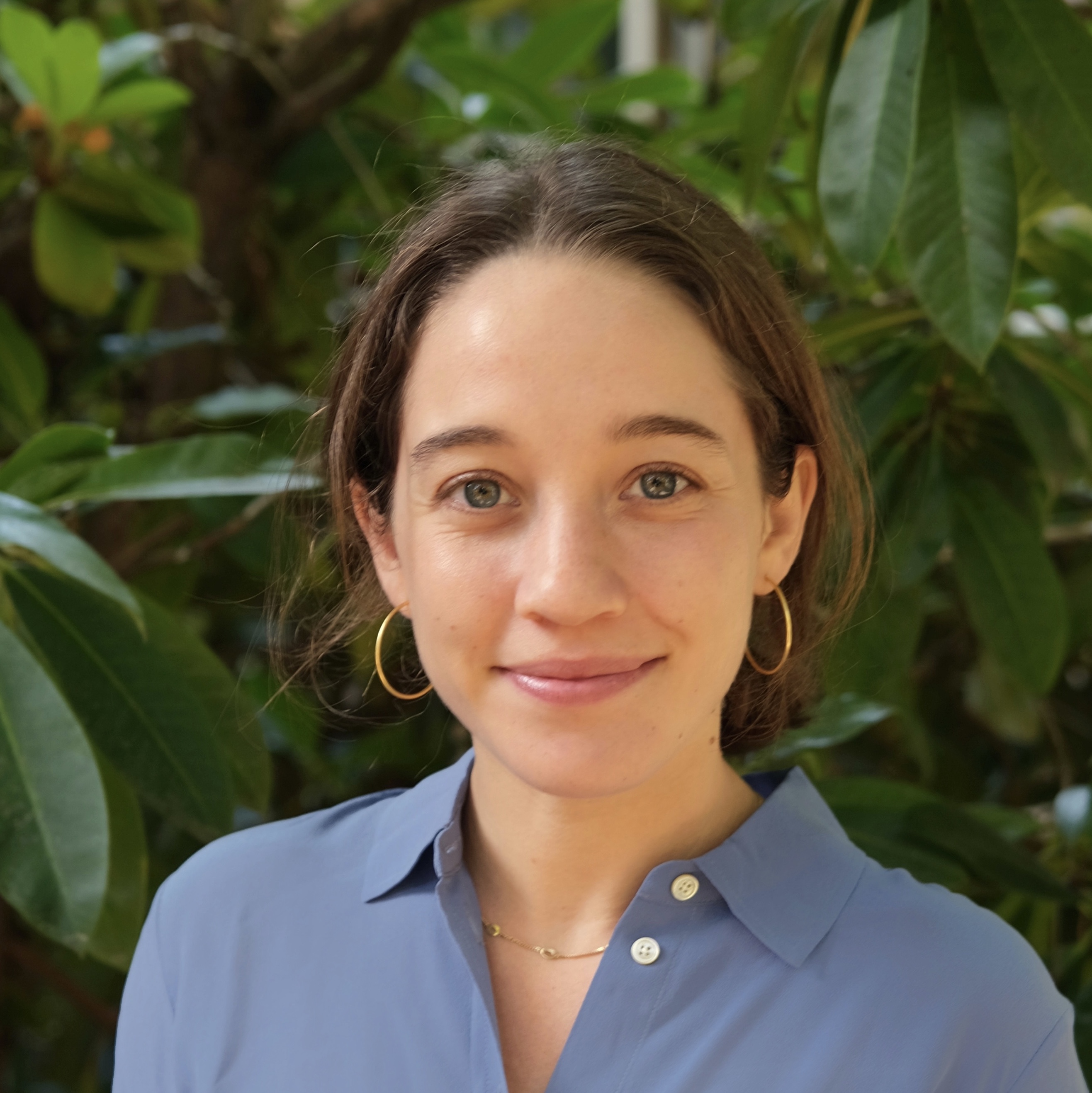scroll
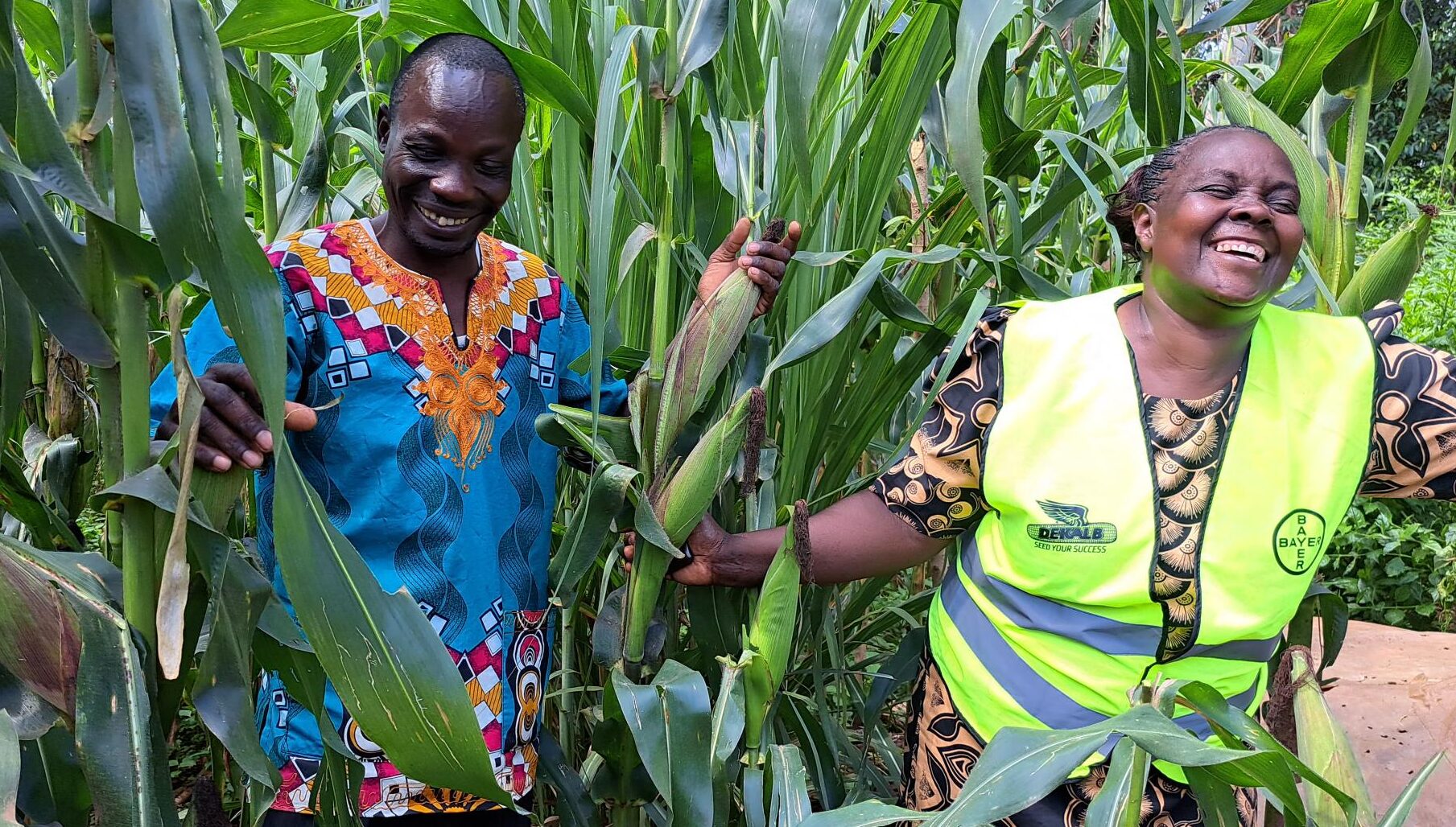
Boomitra has teamed up with the Farm to Market Alliance (FtMA) in East Africa to launch a groundbreaking carbon farming initiative under the United Nations World Food Programme (WFP) Innovation Accelerator. As an alliance comprising six leading organizations in the agricultural industry, FtMA strives to improve market conditions for farmers. By partnering with Boomitra, FtMA will provide additional assistance to smallholder farmers to enhance soil health, build climate resilience, and unlock new financial prospects through carbon revenue.
Boomitra uses remote sensing and AI technologies to remotely monitor soil carbon; nitrogen, phosphorus, and potassium (NPK) levels; and moisture levels across the globe without the need for physical soil sampling. Boomitra couples these insights with internationally certified carbon credits, enabling farmers around the world with the knowledge and financial tools to adopt climate smart agriculture practices, such as reduced tillage and mulching with crop residue. In addition to increasing agricultural yields, preserving biodiversity, and building land equity, these practices sequester carbon – with a goal of offsetting a significant portion of humanity’s greenhouse gas emissions.
The collaboration with FtMA in Kenya is just one of the many initiatives led by Boomitra to unleash gigaton-scale soil carbon removal. The global consortium of FtMA, which includes AGRA, Bayer, Rabobank, Syngenta, WFP, and Yara, operates in Kenya, Tanzania, Rwanda, and Zambia and provides farmers across East Africa with comprehensive support to transition to climate-smart agriculture practices – from farm planning and seed selection to market access. Together, FtMA and Boomitra have already onboarded 89,000 acres of farmland and equipped farmers with the necessary resources to improve soil health and yields while unlocking carbon revenue opportunities.
“Since adopting improved agricultural practices, my harvest has seen a significant increase from 8.9 kg bags per acre to 18 kg bags per acre in just 2 harvest seasons. I am confident that with continued practice of these methods, my yields will continue to improve. Not only do these practices mitigate carbon emissions, but they also reduce production costs, improve soil health, increase water retention, and ultimately boost production.” – Rose Khatambi Meja, a farmer in Kenya of 3 acres.
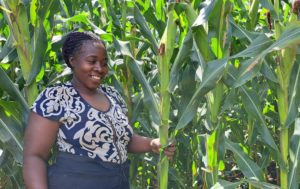
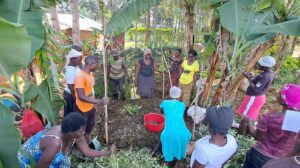
1) Rose Khatambi Meja in her field. 2) A composting demonstration with project participants.
At the heart of the soil carbon project’s implementation is FtMA’s Farmer Service Center (FSC) model. These service hubs connect private and public partners with smallholder farmers, serving an average of 200 farmers per hub. FSCs act as trusted links to farming communities, improving access to critical resources such as information, quality inputs, affordable financing, storage solutions, market connections, and more. This innovative model places local people at the forefront of the project, ensuring that the solutions and interventions are tailored to the unique needs and challenges of each community. The FSCs also benefit by earning income through direct sales or commissions from the linkages they create. In remote farming areas, FSCs play an essential role in mobilizing farmers and delivering swift and cost-effective agricultural interventions to smallholder farmers.
“Carbon credits will create an extra revenue stream to smallholder farmers and enhance the extension services provided to farmers by FSCs, which are critical to the adoption of climate smart agricultural practices.” – Antony Kweyu, Project Manager at PAFID
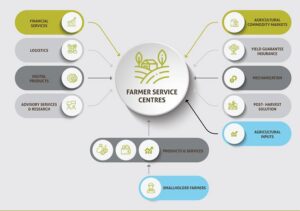
Learn more about Farmer Service Centers here.
Boomitra and FtMA will work closely with 570 FSCs to implement the carbon farming project. This initiative will focus on four main activities. First, it will identify and enroll farmers into the program. Second, it will map and monitor farmland using geospatial and remote sensing technology. Third, it will submit carbon credits to the international verification body (VERRA). Fourth, it will transfer carbon credit finance to farmers based on their carbon sequestration activities. This project is expected to remove an additional 300,000 tCO2e of carbon from the atmosphere annually. After the success of the pilot phase, the project will expand to other countries in East Africa where FtMA operates.
“There are a growing number of agricultural carbon projects around the world, but most of them have minimum acreage enrollment limits that are much larger than the sizes of the majority of farms in the world. This project will be unique in its ability to engage with even the smallest farmers in a meaningful manner that is not only financially viable for both the farmers and the project in the long run, but also has the propensity to scale rapidly to a healthy percentage of farmers in the broader region!” – Aadith Moorthy, Founder & CEO of Boomitra
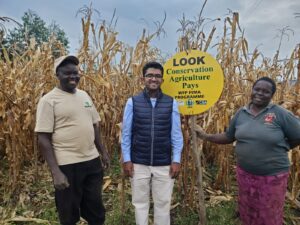
Boomitra’s CEO and Founder, Aadith Moorthy, with participating farmers, Henry and Florence.
Building on WFP’s legacy of innovation, the WFP Innovation Accelerator was launched in 2015 to scale promising innovations to disrupt hunger. The collaboration between Boomitra and WFP aims to enhance the climate resilience of smallholder farmers, boost cropland productivity, and raise farmer incomes by a target of 20 percent–enabling them to reinvest in their farms and communities. With over 2,700 farmers enrolled to date, Boomitra, FtMA and WFP remain dedicated to scaling up carbon farming practices in East Africa, to create sustainable agricultural models that will benefit the farmers and their communities for generations to come.
This project contributes to the following UN Sustainable Development Goals:
![]()
![]()
![]()
![]()
![]()
To learn more, visit: the UN World Food Programme Project Page, the Boomitra Project Page, the Verra Project Page, and the Farm to Market Alliance Website.
